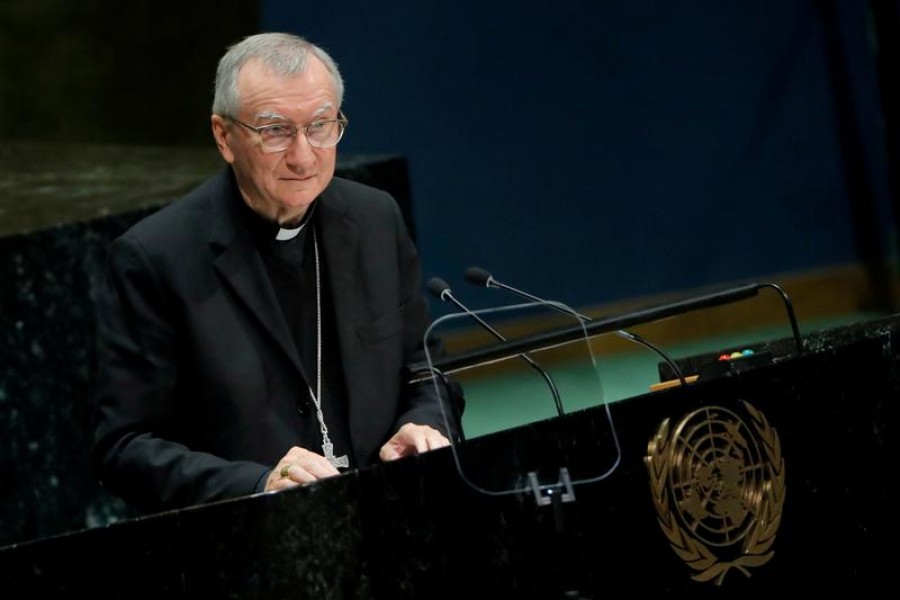The coronavirus pandemic should make governments realise that defence spending cannot guarantee security for their populations and should encourage them instead to divert funds to improve health care and fight poverty, the Vatican said on Tuesday.
“The pandemic offers us a precious opportunity,” Cardinal Pietro Parolin, the Vatican’s Secretary of State and number two in the Vatican hierarchy, told a webinar on disarmament.
“It (the pandemic) prompts us to question how much the huge military expenditures are really able to guarantee the security of individual populations, of how much these resources could and should be allocated to investments to other ends,” he added.
Parolin listed them as health, social equity and poverty eradication, adding that they were “more suited to achieving the objective of security” than military spending.
Parolin was among around 20 Vatican officials, diplomats, academics, and religious leaders who took part in the webinar organised by the Vatican’s development office and London’s SOAS University.
Dan Plesch, director of the Centre for International Studies and Diplomacy at SOAS, said taxpayers around the world spend $2 trillion a year on military activity.
“The pandemic is further shaking an already unstable world, where climate chaos and war compete for the dubious honour of most perilous threat,” said Plesch, whose centre has formulated the Strategic Concept for Removal of Arms and Proliferation (SCRAP) and proposed it to the United Nations.
Participants pointed to positive signs in disarmament, such as the extension of the U.S.-Russian nuclear arms control treaty last month and the entry into force in January of the U.N. Treaty on the Prohibition of Nuclear Weapons (TPNW).
TPNW has been signed by 86 states and ratified by 54, according to the International Campaign to Abolish Nuclear Weapons, which won the Nobel Peace Prize in 2017.
The United States, Britain, France and other nuclear powers have not signed the treaty and boycotted talks that led to it.


